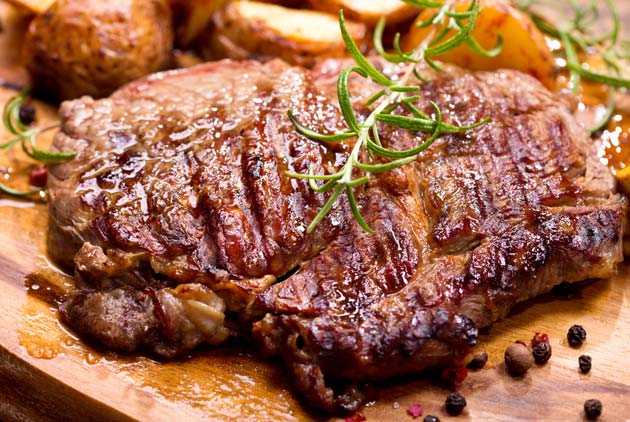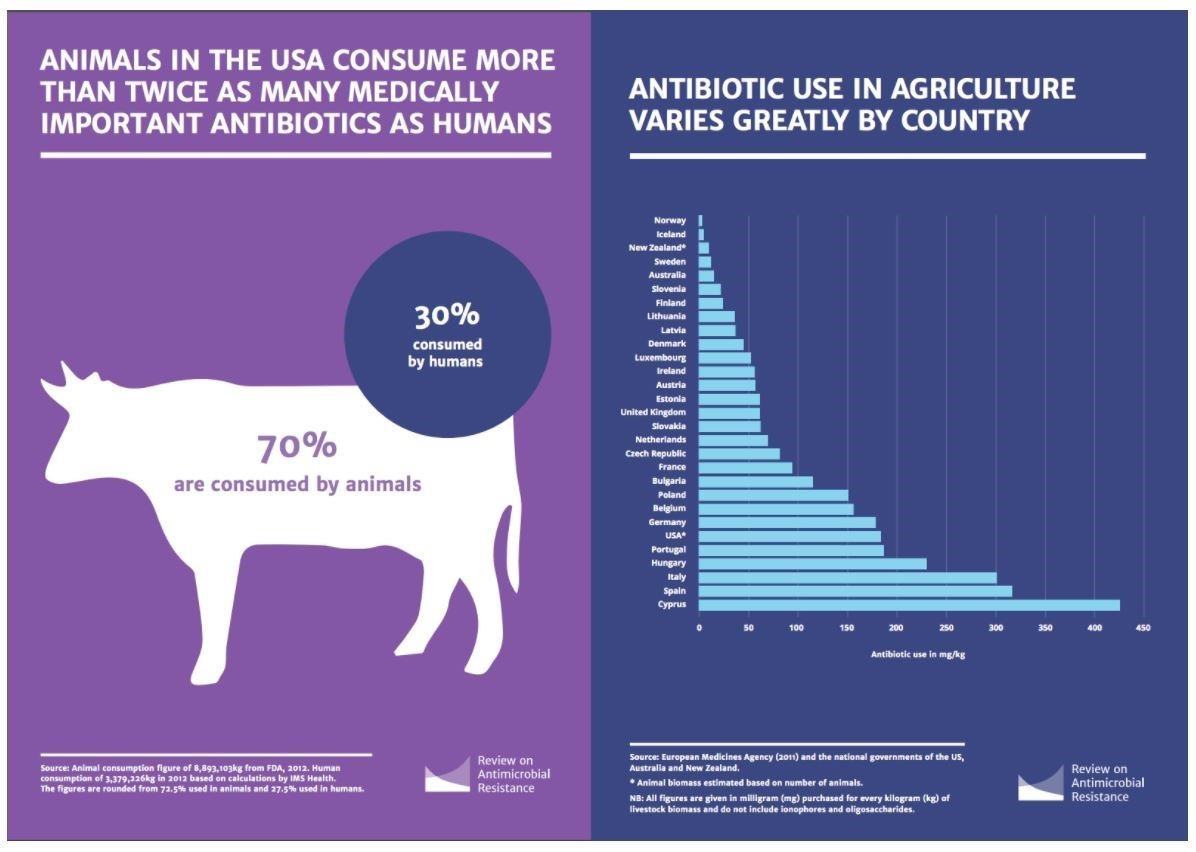To All Carnivores
Here are 8 ways to Eat Meat While Saving the Planet

Source:Shutterstock
A new campaign suggests ways to cut pollution, animal suffering and unfair trade from our diets.
Views
Here are 8 ways to Eat Meat While Saving the Planet
By Adam Jezardweb only
When we push our trolleys around the supermarket we tend to think more about how much our weekly shop is costing us rather than how much it is costing the Earth.
But the choices we make about what we put on our dining tables is having a very real influence on some of the most pressing problems facing our planet, including the global obesity epidemic, climate change and the growing resistance of bacteria to antibiotics.
The drugs used in agriculture (in everything from crop spraying to animal care), the amounts of meat we consume, and the impact of transporting food stuffs around the planet: all have a direct impact on the health of our world and ourselves.
Now a campaign in the United Kingdom by an alliance of more than 50 civil society groups is aiming to raise awareness about the unintended consequences of consumers’ food-buying choices - and inform shoppers about what they can do to help make their food healthier and more sustainable.
 Drug use in animal farming world wide (Image: Wellness Warrior/Food and Drug Administration)
Drug use in animal farming world wide (Image: Wellness Warrior/Food and Drug Administration)
Time to Eat Better
The campaign, Eating Better, has placed reducing the amount of meat we consume, using fewer antibiotics in farming and the human consumption of more plant-based foods at its core.
“The way we feed ourselves is unsustainable,” its website says. “The challenges of obesity, rising food prices, degraded and destroyed ecosystems, waste, animal suffering, climate change, pollution, inequalities and unfair trading systems are the connected impacts of our unsustainable patterns of food consumption and production.”
It adds: “Feeding a growing and more affluent global population healthily, fairly and sustainably simply isn’t possible unless we make some changes.”
The group, which includes the World Wide Fund for Nature UK and Oxfam among its supporter organizations, says there are no “magic bullets” that will solve the problems farming and consumers face. But choosing to eat less - and better - are key to finding a solution.
It adds that producing food in less environmentally damaging ways and reducing food waste are also essential, and that the actions of governments and the industry to achieve these goals have been insufficient.
We are What We Eat
All this may seem daunting to consumers, but Eating Better has issued a report containing eight principles to assist them with their food choices, which include the following points:
1. Choose meat from “pasture-fed” animals as this helps to “lock carbon into the soil”, making farm land more fertile.
2. Choose meat and dairy from well-managed production systems that allow natural animal behaviour, support good health and provide a natural diet to livestock.
3. Choose livestock products that have a diet based around more local foods and home-grown foodstuffs.
4. Shift diets away from overconsumption of meat and dairy to ensure efficient and fair use of resources.
5. Shift towards more plant-based diets, which would have health benefits for the majority of the population, and cut a third of early deaths, according to one recent report.
6. Try to buy products that needed minimal antibiotic use in their production, which means avoiding products made by intensive farming.
7. Meat is a precious resource, so make the most of each carcass and reduce the amount of wasted food.
8. Help smaller farmers by choosing meat and dairy from smaller-scale producers with higher standards. Using farm shops, farmers markets and independent butchers can help reconnect buyers with producers.
Better Information
Better Eating also called for clearer labelling to let consumers know how their foodstuffs had been prepared. It said in its report that in the UK the organic label was the most straightforward as its principles had been out under European Union legislation.
However, labels such as “free range” are open to interpretation, making them confusing for shoppers wanting to make more ethical and healthier choices.
Sue Dibb, Eating Better’s executive director, said: “Industrial livestock production is having a devastating impact on our health, animal welfare and the health of the planet. As people are becoming more conscious about what they eat, a 'less and better' approach to meat and dairy provides a positive way forward.”
She added that the UK’s decision to leave the EU provides Britain with “a timely opportunity to put our livestock production and consumption on to a more sustainable footing and to support and encourage farming practices that benefit animal welfare, the environment and our health”. She also urged the government to play its part in achieving these goals.
Additional Reading
♦ Eat Less Meat
♦ Taiwan's Irresistible Hot Pot Power
♦ Elementary Students Grow their Own Lunch Produce
Original content can be found at the website of World Economic Forum.
♦ Love eating meat? Here are 8 ways to be a conscientious carnivore
This article is reproduced under the permission of World Economic Forum (WEF) and terms of Creative Commons Attribution-NonCommercial-NoDerivs 4.0 Unported License (“CCPL”). It presents the opinion or perspective of the original author / organization, which does not represent the standpoint of CommonWealth magazine.







